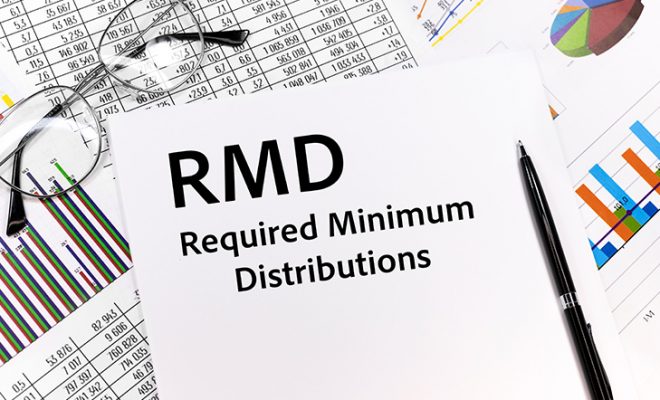Will I Have to Pay Taxes During Retirement?

Is retirement income taxable?
The short answer is yes.
Retirement does not mean the end of taxes. The different types of income you receive may be taxed in retirement. Some of your retirement income will be taxed as ordinary income, while others may fall under capital gains or other categories. You may be required to pay taxes on a wide range of income sources, including Social Security benefits, pensions, investment returns, and withdrawals from retirement accounts such as 401(k)s and Individual Retirement Accounts (IRAs). However, chances are that you already suspected this.
This article aims to explore how different types of retirement income are taxed, identifying which income sources are fully or partially taxable and which may be exempt. Understanding these details can help you structure your retirement income in a tax-smart manner.
So, without further delay, let’s take a closer look at whether pensioners pay income tax and how they do so.
What incomes are taxed in retirement and how?
1. Pension and annuity plans
Yes, pension plans are taxable. If you are fortunate enough to receive a pension from a former employer, be aware that most of the time, this income will be taxed as ordinary income. Most traditional pensions are funded with pre-tax dollars, so neither you nor your employer paid taxes on that money when it was set aside for retirement. This is why, when it is time for you to receive the monthly checks in retirement, you owe taxes on them. The full amount of each payment is taxed at your regular income tax rate, just like a salary.
The same is not always applicable to annuities. In this case, the taxes on your retirement income depend on how you funded the annuity plan. An annuity is another source of retirement income. You buy the plan from an insurance company and, in return, receive regular payments for life or a set number of retirement years. But when it comes to taxes, the way you fund your annuity determines how it is taxed.
If you purchased the annuity using pre-tax dollars, then all of your annuity payments are taxable. These distributions are treated in the same manner as pension income and are taxed at your ordinary income rate. However, if you used after-tax dollars, which are the funds you have already paid taxes on, then only the earnings portion of your annuity payments is taxable. The principal you originally invested is not taxed again, because you have already paid taxes on it. So, you are only taxed on the growth, not the original amount.
2. 401(k)s
The tax treatment of 401(k)s depends on the type of 401(k) you have (traditional or Roth) and when you withdraw the money.
In the case of Traditional 401(k)s, your money grows tax-deferred. Make sure not to mistake this as tax-free! In most cases, your 401(k) is a traditional account, which implies the money you contributed to the account came out of your paycheck before taxes. So, you basically just postponed your taxes until retirement. Now, when you withdraw this money in retirement, the distributions are taxed as ordinary income. These are not taxed at capital gains rates. So, whether you are pulling out your original contributions or your investment gains, it all gets taxed at whatever income tax bracket you are in during retirement. Keep in mind that your total tax bill in retirement still depends on how much you withdraw from your 401(k), what other income you have, and what deductions you can claim.
Once you turn 73, the Internal Revenue Service (IRS) requires you to start withdrawing a minimum amount from your traditional 401(k) every year, also known as Required Minimum Distributions (RMDs). These withdrawals are mandatory, and if you do not take them, there is a hefty penalty. There is an exception, though. If you are 73 and still working, you may be able to delay RMDs from your current employer’s 401(k) until you retire.
Another tax you must be wary of is the early withdrawal tax. If you take money out of your 401(k) before age 59½, you will usually pay both income tax and a 10% penalty on the early withdrawal. Even if you retire early, you will still need to wait until 59½ to avoid the penalty unless you qualify for certain exceptions.
When it comes to a Roth 401(k), there is no income tax on the retirement benefits. With Roth accounts, you contribute after-tax dollars, so you have already paid the taxes upfront. Hence, qualified withdrawals in retirement are tax-free, including both your original contributions and the growth. But, to qualify, you generally need to meet two conditions:
- You must be 59½ years of age or older, and
- You must have held the account for at least five years
Once those are met, your money comes out completely tax-free, and Roth 401(k)s do not have RMDs starting.
3. Social Security benefits
Social Security benefits can be taxed, but not for everyone. In fact, as of 2025, 88% of Social Security beneficiaries will pay no federal income tax on their benefits, and only about 12% of retirees are expected to owe any federal tax on their benefits, according to a report from the White House Council of Economic Advisors. Now, you may or may not be in the 12% bracket, but it is still advisable to understand how the IRS calculates Social Security taxes.
Whether or not your Social Security income is taxed depends on something called your combined income. It is calculated like this:
Combined income = Adjusted Gross Income (AGI) + Non-taxable interest + half of your Social Security benefits
Now, whether that is taxable and the retirement tax rate depends on your filing status and how high that combined income number climbs. If you file as an individual and
- Your combined income is $25,000 or less, your Social Security benefits are not taxable.
- Your combined income is between $25,000 and $34,000, you may pay tax on up to 50% of your benefits.
- Your combined income is over $34,000, up to 85% of your benefits may be taxed.
If you are married and file jointly, and:
- Your combined income is up to $32,000, you pay no taxes on your benefits.
- Your combined income is between $32,000 and $44,000, you may be taxed on up to 50% of your benefits.
- Your combined income is above $44,000, as much as 85% could be taxable.
If you are married and filing separately, in most cases, you will likely pay taxes on your Social Security benefits, regardless of your income, even if you are living with your spouse. This means that up to 85% of your total benefit amount is included as taxable income at your ordinary income rate.
There are some special senior tax deductions that you must know about. For tax years 2025 through 2028, seniors age 65 or older can claim a special $6,000 deduction per person. Therefore, if you are married and both spouses are over 65, you can claim a total deduction of $12,000. However, the deduction starts to phase out when AGI exceeds $75,000 for individuals and $150,000 for joint filers. It reduces the amount by 6% over that threshold, but it can’t drop below zero.
What about state taxes?
Even if you avoid federal taxes on your Social Security, you could owe state taxes. The good news is that most states do not tax Social Security. But if you live in Minnesota, Connecticut, Colorado, Montana, Rhode Island, New Mexico, Vermont, Utah, or West Virginia, you might owe something at the state level. Take Vermont, for example. If you are single and your AGI is $50,000 or less, your Social Security is not taxed by the state. If it is between $50,000 and $60,000, a portion of your benefits may be taxed. However, if the amount exceeds $60,000, the full amount of your federally taxable benefits will be subject to state taxation.
For married couples filing jointly, Vermont exempts Social Security benefits from taxation if your AGI is $65,000 or less. Partial exemptions apply between $65,000 and $75,000, and full taxation takes effect above that amount.
4. IRA
The tax treatment of your IRA largely depends on the type of IRA you hold and whether the contributions were made with pre-tax or after-tax dollars.
Let’s start with the most common one – the Traditional IRA. If you contributed to it during your working years, chances are you got a tax deduction for doing so. However, when you retire and begin taking withdrawals, that money is taxed. Any funds you pull out are treated as ordinary income. And once you hit age 73, you are required to start taking minimum distributions, just like 401(k)s.
Now, if you were thinking ahead and opened a Roth IRA, this one works a little differently. You do not get any tax breaks when you contribute. The money goes in after you have already paid taxes on it. But, in retirement, your withdrawals are completely tax-free, as long as you have had the account for at least five years and you are over 59½. This includes both your contributions and the benefits you gain.
Then there is the Rollover IRA. This usually comes into play when you leave a job and decide to roll your 401(k) into an IRA. You will owe taxes on the money that is being rolled over in the year the contribution is made.
5. Investment returns
When you make money from investments, such as stocks, bonds, real estate, or even something less traditional like cryptocurrency or collectible cars, the profits are usually taxed as capital gains. However, not all gains are treated equally. The key detail lies in how long you have held the asset.
If you sell something you have held for more than a year, it is considered a long-term capital gain. And that is good news because long-term gains are taxed at lower rates—either 0%, 15%, or 20%, depending on your income and filing status. Here’s the table for long-term capital gains for 2025:
| Retirement tax rate | Single | Married filing jointly | Married filing separately | Head of household |
| 0% | $0 to $48,350 | $0 to $96,700 | $0 to $48,350 | $0 to $64,750 |
| 15% | $48,351 to $533,400 | $96,701 to $600,050 | $48,350 to $300,000 | $64,751 to $566,700 |
| 20% | $533,401 or higher | $600,051 or higher | $300,001 or higher | $566,701 or higher |
There are a few exceptions to these rules. For example, property received as a gift or inherited property, or in the case of things like patents. But for most people, the basic principle holds – if you hold onto an investment long enough, you are rewarded with a lower tax rate.
But if you bought an asset and sold it within a year or less, that profit is called a short-term capital gain. Short-term gains do not get the same special treatment as long-term capital gains. They are taxed just like your regular paycheck, according to your ordinary income tax rate. So, depending on how much you earn, you could be paying anywhere from 10% to 37% on those gains.
6. Other taxes you might run into
While capital gains tax gets most of the attention, there are a couple of other tax rules that can sneak up on you, especially if you are earning a bit more or investing in unique assets.
First, there is the Net Investment Income Tax (NIIT). If you are a high earner, this might apply to you. This is an extra 3.8% tax on investment income if your Modified Adjusted Gross Income (MAGI) crosses a certain threshold. The threshold is:
- $200,000 if you are single or filing as head of household
- $250,000 if you are married filing jointly or a qualifying widow(er) with a dependent child
- If you are married and filing separately, the threshold is lower at $125,000
Then there’s the special case of collectibles, like coins, vintage cars, precious metals, antiques, and fine art. If you sell one of these and make a profit, and you have held it for more than a year, the long-term capital gains tax can go up to 28%. And if you sell it within a year, it is back to ordinary income tax rates, just like any other short-term gain.
To conclude
Now that you have a better understanding of what is taxed and how, it’s time to start thinking ahead. Consider working with a tax advisor or financial planner who can walk you through the details. Our free advisor match tool can help you find someone local and trustworthy. Together, you can sit down, review all your investments and retirement accounts, and come up with a smart strategy for how and when to take your withdrawals.
For further information on creating a suitable retirement plan for your unique financial requirements, visit Dash Investments or email me directly at dash@dashinvestments.com.
About Dash Investments
Dash Investments is privately owned by Jonathan Dash and is an independent investment advisory firm, managing private client accounts for individuals and families across America. As a Registered Investment Advisor (RIA) firm with the SEC, they are fiduciaries who put clients’ interests ahead of everything else.
Dash Investments offers a full range of investment advisory and financial services, which are tailored to each client’s unique needs providing institutional-caliber money management services that are based upon a solid, proven research approach. Additionally, each client receives comprehensive financial planning to ensure they are moving toward their financial goals.
CEO & Chief Investment Officer Jonathan Dash has been covered in major business publications such as Barron’s, The Wall Street Journal, and The New York Times as a leader in the investment industry with a track record of creating value for his firm’s clients.










